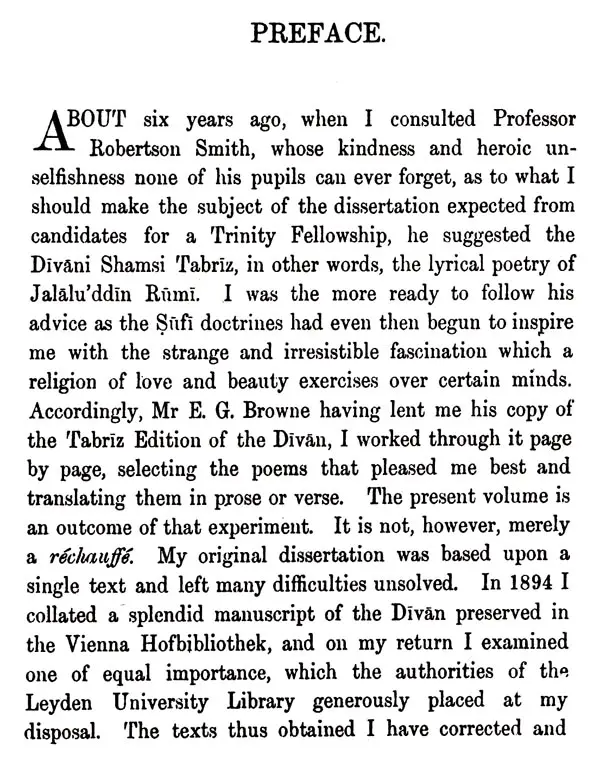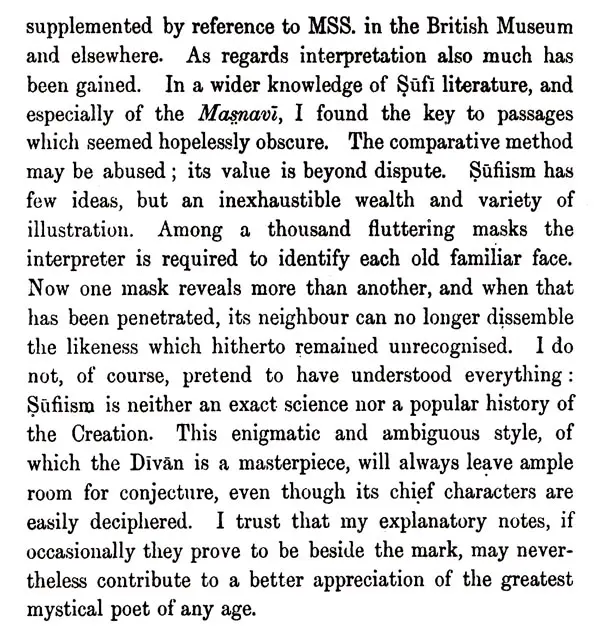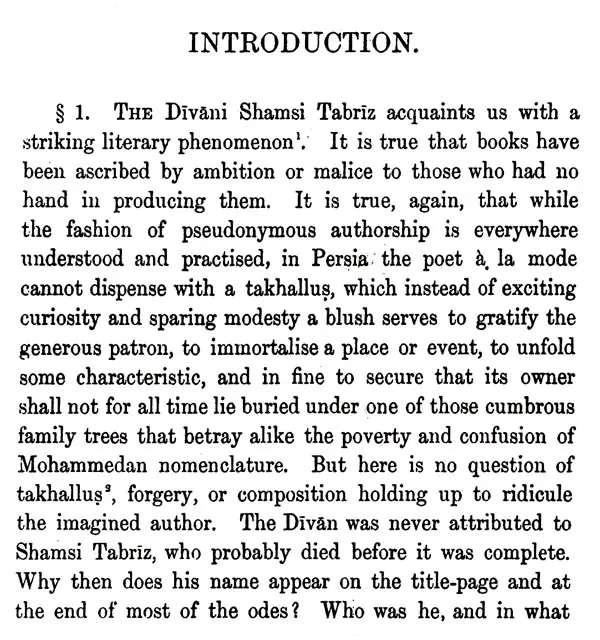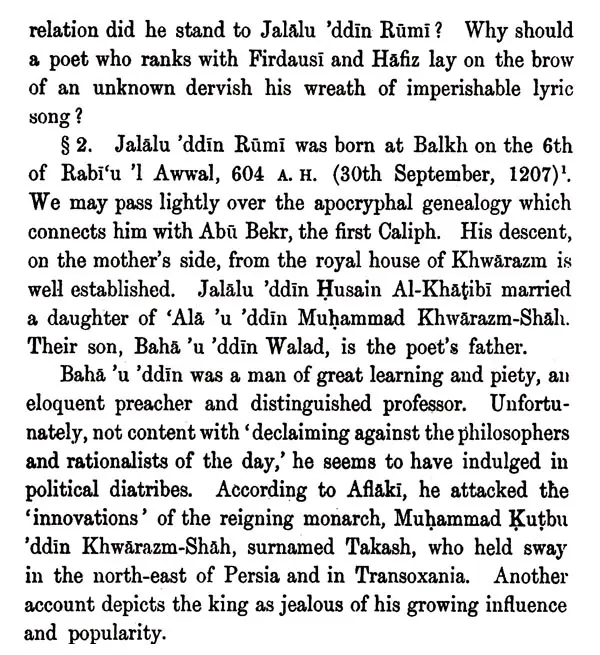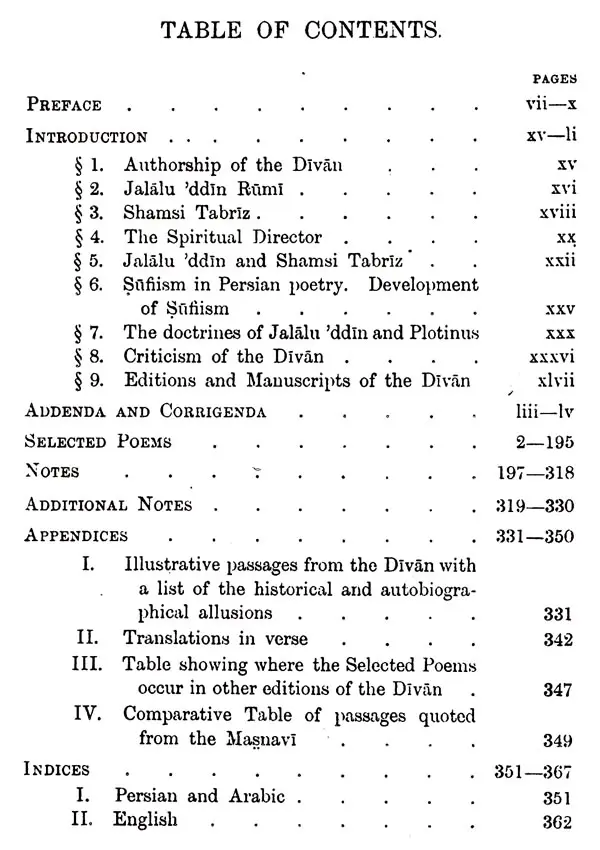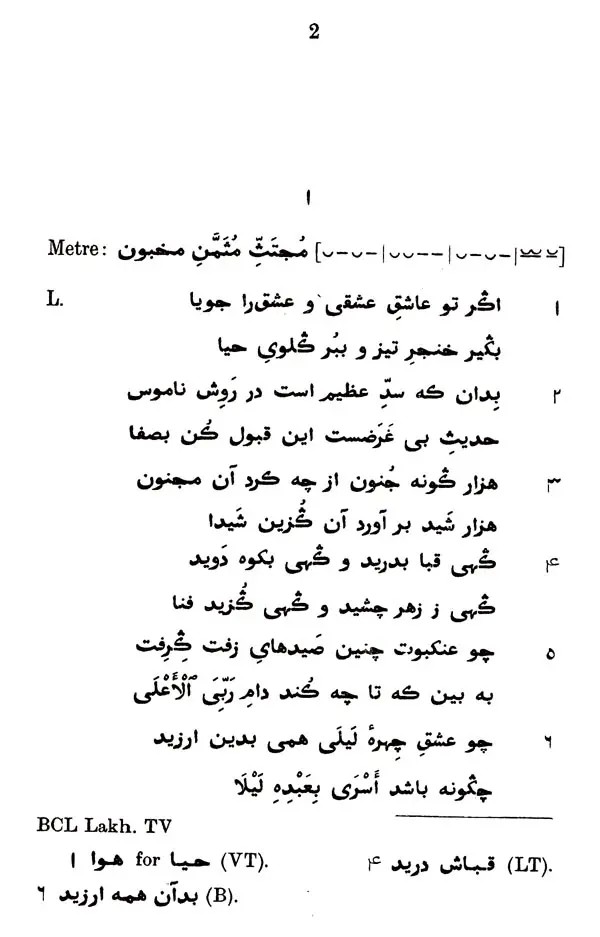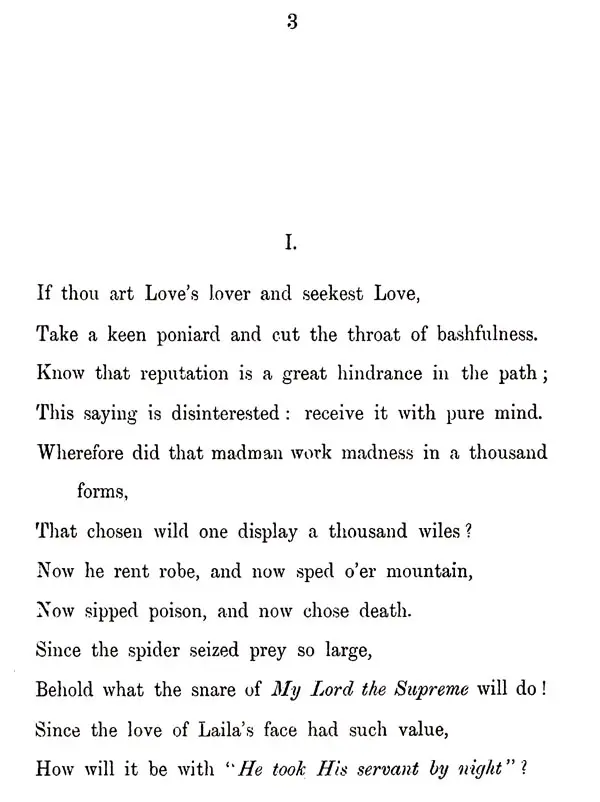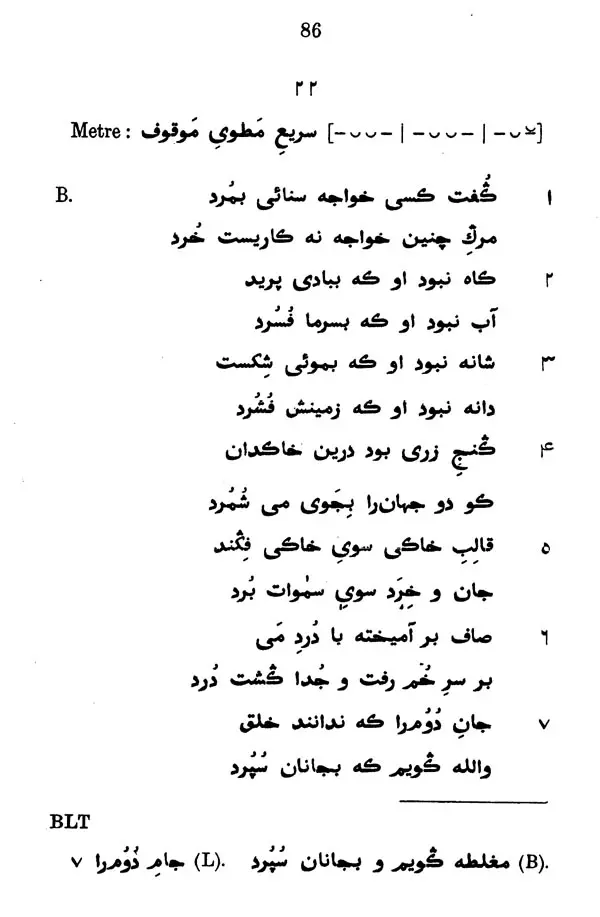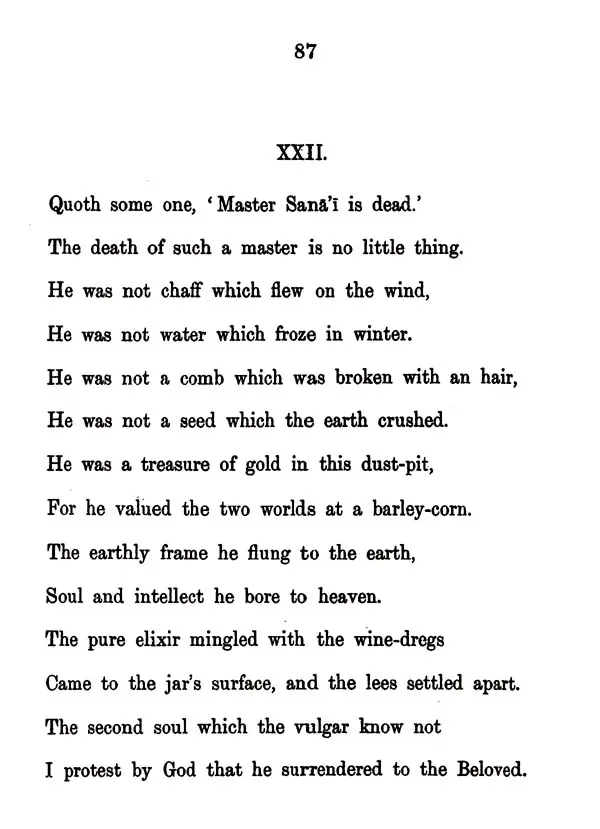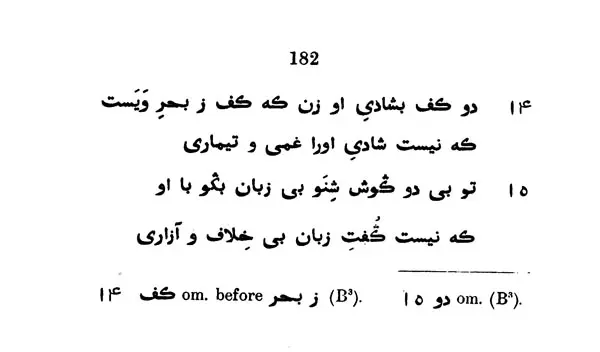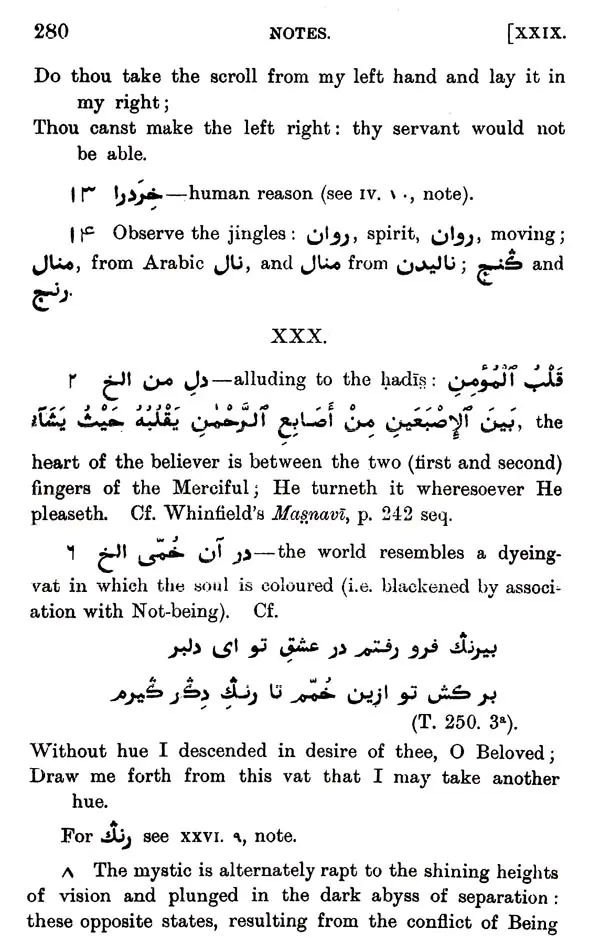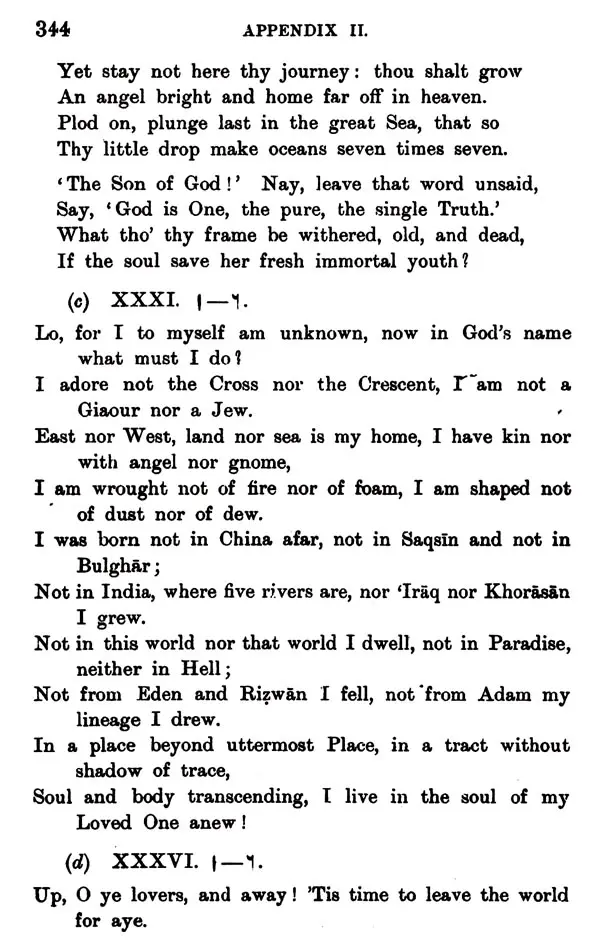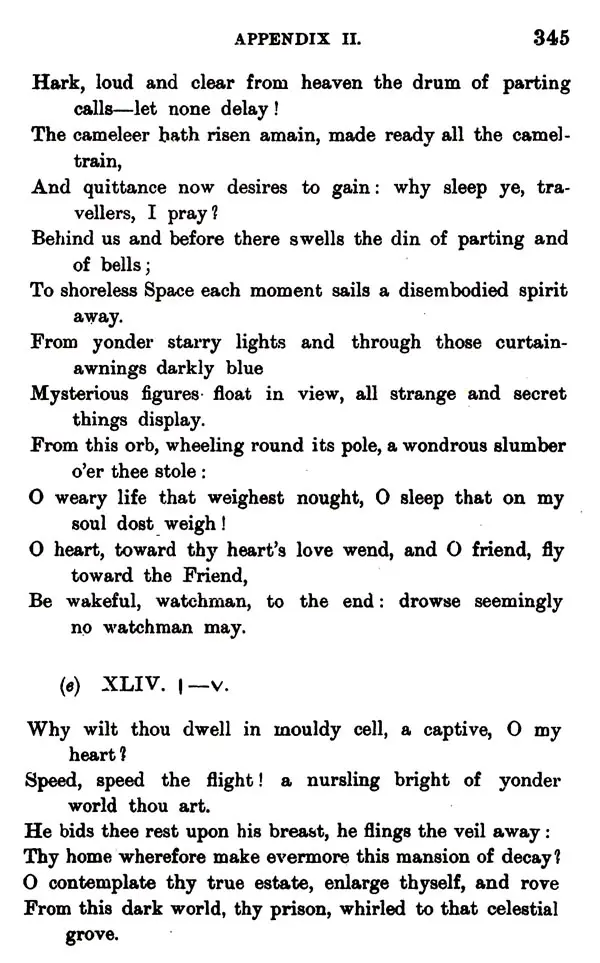
Selected Poems from the Divan-e Shams-e-Tabrizi
Book Specification
| Item Code: | UAI648 |
| Author: | Jalaluddin Rumi and Reynold Alleyne Nicholson |
| Publisher: | Gulshan Books, Kashmir |
| Language: | English and Urdu |
| Edition: | 2015 |
| ISBN: | 9788183393096 |
| Pages: | 421 |
| Cover: | HARDCOVER |
| Other Details | 9.00 X 6.00 inch |
| Weight | 600 gm |
Book Description
Rumi at the age of thirty-seven meets SHAMS-E-TABRIZI (the sun of Tabiriz) "a weird figure wrapped in coarse black felt, who flits across the stage for a moment and disappears tragically enough." Shams has variously been described as: "being extremely ugly," "a most disgusting cynic;" and having an "exceedingly aggressive and domineering manner." Jalalaldin who until then had no interest or liking for poetry "found in the stranger that perfect image and Divine Beloved which he had long been seeking. He took him away to his house, and for a year or two they remained inseparable... Rumi's pupils resented their teacher's preoccupation with the eccentric stranger, and vilified and intrigued against him until Shams fled to Damascus. Rumi sent his son to bring him back; but the tongues of his jealous traducers soon waged again and...in 1247, the man of mystery vanished without leaving a trace behind."
Reynold Alleyne Nicholson (1868-1945), was the greatest Rumi scholar in the English language. He was a professor for many years at the Cambridge University, in England. He dedicated his life to the study of Islamic mysticism and was able to study and translate major Sufi texts in Arabic, Persian, and Ottoman Turkish. That a Western "scholar of the first rank" dedicated much of his life to the study and translation of Rumi's poetry was very fortunate.
His monumental achievement was his work on Rumi's Masnavi (done in eight volumes, published between 1925-1940). He produced the first critical Persian edition of Rumi's Masnavi, the first full translation of it into English, and the first commentary on the entire work in English. This work has been highly influential in the field of Rumi studies, world-wide. His critical Persian text has been re-printed many times in Iran and his commentary has been so highly respected there, that it has been translated into Persian (by Hasan Lähûtî, 1995).
**Contents and Sample Pages**

